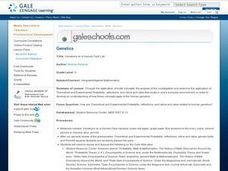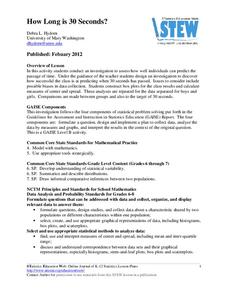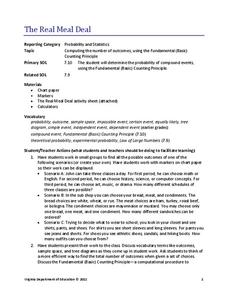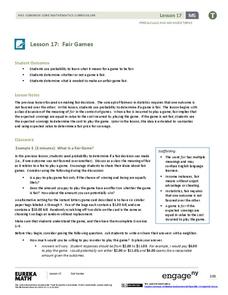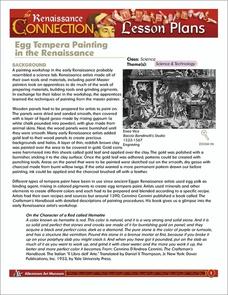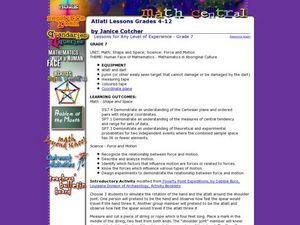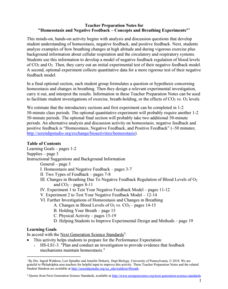Curated OER
Changing Ramp Heights
Students conduct an experiment to determine how the change in ramp height affects the distances a ball is able to move a stationary cup. Data is collected from several trials and recorded and analyzed.
Curated OER
Variations on a Human Face Lab
Ninth graders gain an application level understanding of probability, symmetry, and ratios and rates that exists in one's everyday environment relative to human genetics.
American Statistical Association
Don't Spill the Beans!
Become a bean counter. Pupils use a fun activity to design and execute an experiment to determine whether they can grab more beans with their dominant hand or non-dominant hand. They use the class data to create scatter plots and then...
American Statistical Association
How Long is 30 Seconds?
Is time on your side? Pupils come up with an experiment to test whether their classmates can guess how long it takes for 30 seconds to elapse. They divide the class data into two groups, create box-and-whisker plots, and analyze the...
Virginia Department of Education
The Real Meal Deal
Burgers and salads and sodas, oh my! Scholars use a menu to investigate the Fundamental Counting Principle. They create tree diagrams to illustrate the number of possible choices for each given scenario.
Curated OER
How Things Fly
Students will examine the physics of flight through using experimental inquiry. In this lesson plan, you'll introduce your students to the four forces of flight--drag, lift, thrust, and weight--through a variety of fun-filled flight...
Curated OER
The Colored Cube Question
Fourth graders examine how to determine the probabilities or likelihood of outcomes. They complete trials to determine probability while using different manipulatives. They determine how games can be made fair or unfair in this unit of...
Curated OER
Take A Chance Or Two
A two-part lesson immerses young statisticians in the concept of probability. On the first day, will conduct experiments with a two-colored coin and learn how to write probabilities as fractions, ratios, and percentages. In the second...
Curated OER
CLOUD IN A BOTTLE
Students make observations of what they see happening in the formation of a cloud in a modeled situation. They compile their observations in a list to better explain how the formation happened.
Curated OER
Efficiency Means Getting More for Less
Students measure water and make predictions about efficiency.
Curated OER
Fair Games
Fifth graders examine the statistics of playing games. Many games of chance and activities in maths text books involve rolling two dice and combining the scores, usually by addition. Students often find the probabilities of such events...
Curated OER
Grade 5: Alphabet Frequency
Fifth graders collect and organize data from writing samples, use fractions and decimals to describe the experimental data, and use the experimental results to make predictions about the frequency of letter usage in the English language.
Curated OER
Waterwheel Work
Students investigate the history of the waterwheel and common uses for water turbines today. They construct an experimental waterwheel using a two-liter plastic bottle, measure the rate of revolution of a waterwheel, and complete a...
Curated OER
Egg Tempera Painting In The Renaissance
Students explore the development of paint and paintings during the Renaissance. In a science lab, they reproduce the properties of egg in tempera paint and compare and contrast egg tempera paintings to oil paintings. Through...
Curated OER
Volcanoes!
Young scholars study the Mount St. Helens eruption and how it occurred. In this experimental lesson students complete a lab that shows the eruption of Mount St. Helens.
Curated OER
Make the Highest Total
Sixth graders predict the outcome of a simple probability experiment, test it and explain the result by using problem solving strategies to explore situations mathematically. They then play a few games informally where students play in...
Curated OER
R-Project
Students analyze the outcome of a scientific experiment using free downloadable software. They collect experimental data to use statistical software to determine if the observations are likely due to the treatment or random chance.
Curated OER
M&M Exponential Activity
Students create a scatter plot of their experimental data. In this algebra lesson, students use M&M's to determine an algebraic model. They discuss results in class.
Curated OER
Houses
Third graders use a number of problem solving strategies in this unit of lessons. They determine how to draw and model three-dimensional objects, use co-ordinate systems, determine probability of events, and identify paths of simple...
Curated OER
Spinning Nickels
Students make predictions to figure out the probability of a spun nickel landing on either heads or tails. They test their predictions through experimentation. They create a graph showing the frequency for the number of heads.
Curated OER
Disease and Epidemics
Explore how the study of diseases and epidemics can be comprehended from a mathematical perspective. Investigate finite geometric series, calculating threshold values, and statistical models of the spread of disease. How many makes it an...
Curated OER
The Bell Curve
Learners are introduced to the concepts of the normal curve, skewness and the standard deviation. They discuss how the normal distribution has been used and misused to support conclusions.
Curated OER
Atlatl Lessons for Grade 7
Seventh graders examine force and motion. For this seventh grade mathematics/science lesson, 7th graders collect and analyze data regarding the use of an atlatl to throw a spear. Students describe and analyze the motion which leads to...
Serendip
Homeostasis and Negative Feedback – Concepts and Breathing Experiments
More asthma attacks happen at higher altitudes, but why? Scholars complete worksheets, learning about homeostasis and feedback related to breathing. Then, they work in small groups to experiment with breathing in limited amounts of...



